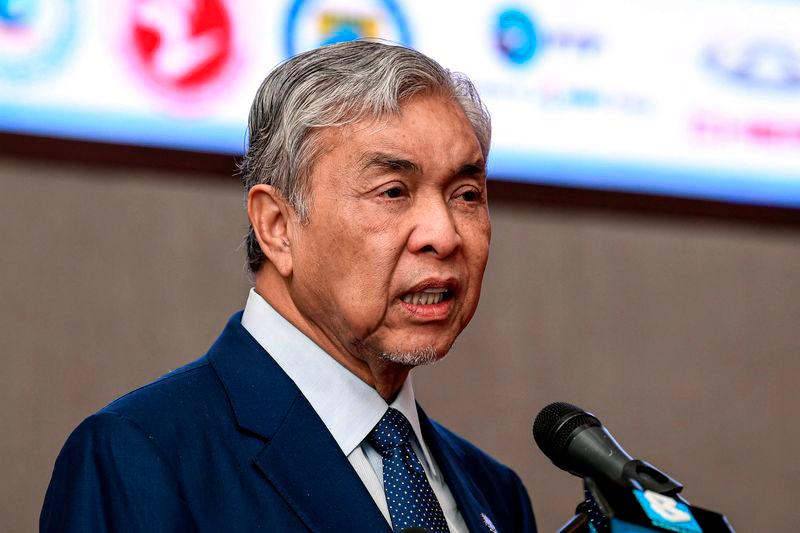KUALA LUMPUR: The Malaysian Halal Council is coordinating efforts with the state governments and agencies to identify abandoned land for use to expand the country’s production of halal products, Dr Ahmad Zahid Hamidi.
He said the move was part of an effort to ensure that the halal industry continued to grow globally and not just focus on food and beverage products.
“To go to the international level, we have to work on many other aspects such as halal vaccines, and the most important is the preparation of ingredients for halal-related products such as lemongrass, galangal, herbal ingredients which are very necessary for the production of cosmetics products and others,” he said.
Ahmad Zahid, also the Halal Industry Development Council (MPIH) chairman said this during the Minister’s Question Time in the Dewan Rakyat, today.
He was responding to a supplementary question from Datuk Adnan Abu Hassan (BN-Kuala Pilah) who wanted to know why not many large foreign companies took the opportunity to get the Malaysian halal certificate for their products, despite the halal certificate widely accepted by Muslims around the world
According to Ahmad Zahid, as of this month, a total of 9,146 companies have been issued with the halal certificate by the Malaysian Islamic Development Department (JAKIM) and they comprise 8,105 Micro, Small and Medium Enterprises (PMKS) and 1,041 multinational companies.
Citing the 2030 Halal Industry Master Plan (HIMP), he said, it outlined a strategic core that focused on increasing the competitiveness of Bumiputera companies to increase the involvement of Bumiputera companies in the halal industry.
He said the Halal Development Corporation Berhad (HDC) also carried out various programmes involving local companies given the opportunity to venture into the high-potential halal sector to strengthen the supply chain, as well as the adoption of digital technology and the commercialisation of innovative products.
Citing the Malaysia Global Halal Show 2024, he said, it involved 153 companies with four of them being Bumiputera companies in the food and beverage, cosmetics and personal care sectors.
He was responding to an original question from Adnan about the government’s plan to empower the halal industry to PMKS, Bumiputera companies, rural companies and young entrepreneurs in line with Malaysia’s goal of becoming a leader in the international halal market.
To a supplementary question from Datuk Mohd Shahar Abdullah (BN-Paya Besar) about convincing investors in the halal industry, Ahmad Zahid said investors from China had expressed their willingness to invest about RM5 billion in Malaysia.
We will discuss how to distribute the investment in halal industrial parks in the states so that the states can also benefit, he added.









